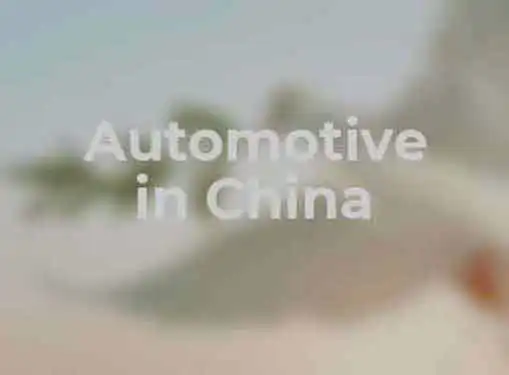Doing Business in China
The Automotive Industry in China (Part 1 of 2)
Written by Bobby Jan for Gaebler Ventures
China is a country of opportunities for entrepreneurs. Some of the greatest opportunities exist in the automotive sector. This article discusses how the automotive sector is bring about a new car culture in China.
The automotive sector has had a great impact on the China, both economically and culturally.

The Chinese Car Culture
Today, owning a car has become a common dream for the emerging Chinese middle class.
Car ownership is a major status symbol in China to the extent that car ownership might even greatly increase the chances for a man to find a wife. Families across China are saving money to purchase cars to show their success.
In 2007, McDonald opened its first drive-through in China, with plans to open many more in the coming years. Interviews with Chinese car owners show that they are eager to embrace this new convenience. This is just one of many signs that the Chinese car culture is well underway.
The central government also embraces China's new car culture. In the early 1990's, the central government made the car industry a "Pillar Industry", or an industry that would support many other industries in the Chinese economy. For example, demand for cars will lead to demand for steel, glass, rubber, fuel, labor, automotive maintenance services, insurance, loans, etc.
Booming sales year after year shows that China is indeed replacing its bicycle culture with a car culture.
People who could not afford relatively expensive imports save money to buy domestically manufactured Chinese cars such as the Geely, which retails for about $4,000. Others with more means want to buy the best. As a result, sales of luxury cars in China are burning bright in spite of very high taxes imposed on luxury models.
As there are more and more cars in China, the government is investing heavily in infrastructure to accommodate them all. New roads are being built, existing roads are made wider, and buildings are being torn down to make room for such expansions.
Despite these efforts, traffic is becoming a very big problem in Chinese cities. In Shanghai, for example, bicycles are being banned on some major streets to make room for cars.
Cars, naturally, change how people travel. The boom in car ownership means that people can now live farther away from work and city centers which in turn fuels the already hot real estate boom in China.
Large retails stores are now opening all across China now that people can transport goods with their cars. Try taking home a refrigerator on your bicycle!
Cars also create many new social problems. Now that streets in major cities are filled with cars, fatal accidents are also on the rise. Most drivers in China do not have extensive driving experiences since most of them only recently bought their cars. To make matters worse, many people who do not want to go through the trouble of testing for a drivers license simply buys one (through bribes).
As you can see, the automotive sector is transforming the Chinese society. Such rapid changes create many opportunities for entrepreneurs to come in and provide new services that people want.
Cheng Ming (Bobby) Jan is an Economics major at the University of Chicago who has a strong interest in entrepreneurship and investing.
Share this article
Additional Resources for Entrepreneurs


Conversation Board
What's your take on the automotive industry in China? We welcome your questions, comments and any tips you care to share.